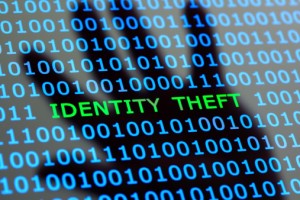
Jean Chatsky, an American financial journalist, author and motivational speaker, has made a list of the most recent methods identity thieves use to deprive you of your identity. Read them and then act accordingly to be sure you aren’t the next victim.
Approximately 15 million United States residents have their identities used fraudulently each year with financial losses totaling upwards of $50 billion.
Identity Theft Through E-Mail
The conman sends you a message saying it is from a retailer, the U.S. Postal Service or other common deliverer regarding a package that can’t be delivered. The message includes a fake email address that you are supposed to use to resolve the problem. It asks for details about your identity. Or it may ask you to fill out a form and take it to your post office. That download may install malware onto your computer that feeds more information to the bad guys.
Email Attachments
Never click on a link or attachment you receive in an email unless you know the sender. If, in fact, you have a delivery that couldn’t be made, you will receive written notice on your door or in the mailbox from the sender. Contact the shipper.
Smishing
Smishing is a new coined word that is first cousin to phishing. But instead of trying to get you to take their bait via email, the fraudsters use text messages. Usually it involves a message about a great deal, a deep discount. To take advantage of the “bargain,” you divulge your personal information, and set your self up to become a victim. Don’t pay attention to any text from someone you are not familiar with. Legitimate deals come directly from the company. Sometimes they come as a text, but you have to sign up to receive them.
Social Media Messages
The crooks pay attention to your social media messages to figure out how to steal your identity. If you post on Facebook or Twitter that you just had a great experience at a restaurant or retailer, they may call, text or email you pretending to be from the business with whom you were pleased. They may tell you your credit card didn’t go through and ask for the information. Then they have the means to set up a false account in your name. Bye-bye security.
Bogus Charities
Using fake addresses and websites to appeal to you to support a “good cause,” they weasel pertinent information from you. These scams often follow a highly-publicized disaster to take advantage or your empathy for those who have been negatively affected. Hurricane Katrina spawned thousands of fake “charities.” If you want to support good works, give via well-known and reputable websites. Or write a check. If you are solicited by email or text, never click on a link. Consider making your donation to a large, well-recognized entity such as Red Cross, Doctors Without Borders or others that you know to be bona fide organizations.
The people who would use electronics means to cheat you make it a full-time job. Stay informed so you’re always a step ahead of them.
